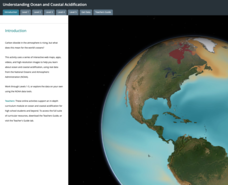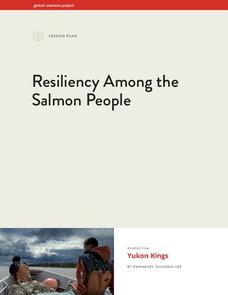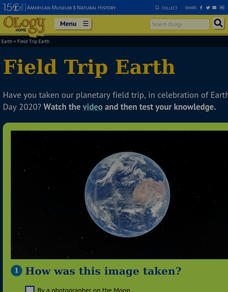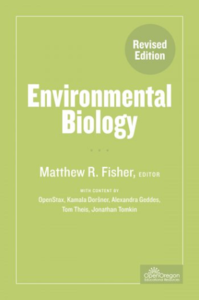CFR Washington
Urbanization and Wildlife
Urbanization and how it affects wildlife is the focus of a presentation that uses statistics to make a case for concern and change.
Curated OER
AP Biology Daily Lesson Plans Curriculum
Searching for exciting lesson plans filled with hands-on activities to use in your traditional classroom environment? Look no further! This set of lesson plans for AP Biology covers topics from genetics to evolution, botany to ecology,...
NOAA
Ocean Acidification
Carbon dioxide is on the rise; does that also mean a rise in danger to humans and animals? Scholars learn what that means for the environment and more specifically the ocean. They examine data on the pH of different ocean areas and learn...
American Museum of Natural History
What is the Greenhouse Effect?
Without the greenhouse effect, Earth would not be inhabitable. A thorough online resource describes the greenhouse effect and how it occurs. The source highlights the different types of gases that work together to absorb the sun's...
NASA
Water Works on a Blue Planet
Keep within a water budget. Learners find out that less than 2.5% of Earth's water is available to drink—and that there is a fixed amount of water. Scholars read an interesting article comparing the available water to a game of Monopoly...
National Wildlife Federation
Habitat Web
Young scientists weave together an understanding of ecosystems with this fun collaborative activity. Taking on the roles of different living and non-living elements of specific habitats, learners use a ball of yarn to create the web of...
NASA
Comparing Temperature and Solar Radiation for Common Latitudes
There's snow much to learn! Excited individuals use real-world data to discover how latitude affects the odds of a snow day. Scientists compare latitude, solar radiation, and temperature using NASA data for several locations....
American Museum of Natural History
Ask a Scientist About Our Environment
Let's ask an expert! Scientists at the American Museum of Natural History field questions about the environment in an interactive resource. Question topics range from global warming and conservation to endangered species and habitats.
National Park Service
Glaciers and Water
Explore the amazing power of glaciers with a hands-on earth science experiment! After first learning basic background information, learners go on to create their very own chunks of frozen water and gravel in order to observe first-hand...
Global Oneness Project
Reclaiming Rivers
Robert Hass's article "Rivers and Stories" underscores the importance of rivers in the development of civilization and the importance of reclaiming supposedly dead rivers and implementing policies that protect river health. Groups...
Global Oneness Project
Resiliency Among the Salmon People
Is losing cultural traditions the cost of social progress, or should people make stronger efforts to preserve these traditions? High schoolers watch a short film about the native Yup'ik people in Alaska and how they handle the shifts in...
American Museum of Natural History
Field Trip Earth
Take a field trip around Earth by way of satellite images. Learners watch a video lesson that describes different images taken from orbiting satellites. They then test their visual skills in a 14-question online quiz.
Carnegie Mellon University
Consumer Preferences in Lighting
What is a watt? This tongue-twisting, mind-bending question and others are answered through this instructional activity on the different lighting options available. With the support of a PowerPoint, teach your physical science class...
NOAA
The Biogeochemical Cycle
The biogeochemical cycle ... no physics? The fourth installment of a 23-part NOAA Enrichment in Marine sciences and Oceanography (NEMO) program introduces the biogeochemical cycle by having pupils simulate movement between Earth's...
Florida International University
The Good, the Bad and the Nasty Tasting
Examine the benefits of chemical defense mechanisms. Organisms in oceans use chemicals to ward off predators. Duplicate this adaptation using a hands-on experiment in which you ward off your predators (your pupils) with some bad-tasting...
Open Oregon Educational Resources
Environmental Biology
Everyone has a responsibility to take care of the environment. Give learners a sense of our environmental concerns with a complete course on environmental biology. The textbook resource includes instruction on topics such as population...
American Museum of Natural History
Be a Water Saver
Everyone must do their part to make a difference. The lesson link provides an 11-item questionnaire to reflect on conservation practices. Simple and straightforward, the lesson is perfect as a remote learning resource or as a tool for an...
NASA
Earth's Global Energy Budget
Introduce your earth science enthusiasts to the earth's energy budget. Teach them using an informative set of slides that include illuminating lecturer's notes, relevant vocabulary, embedded animations, colorful satellite maps, and a...
California Academy of Science
A Day in the Life of a San Francisco Native Animal
Before Google, before Sillicon Valley, before the Gold Rush, the San Francisco landscape was a biome filled with grizzly bears, mule deer, tule elk, coyotes, gray fox, gophers, and moles. To explore the early days of yesteryear, kids...
National Park Service
Living & Non-Living Interactions
What better way to learn about ecosystems than by getting outside and observing them first hand? Accompanying a field trip to a local park or outdoor space, this series of collaborative activities engages children in learning about the...
Carolina K-12
African Americans in the United States Congress During Reconstruction
The Civil Rights Act of 1866, which granted citizenship to all males in the U.S., resulted in the first African Americans to be elected to Congress. Class members research 11 of these men, the challenges they faced, and craft...
K12 Reader
The Grand Canyon
After reading s short description of the Grand Canyon, readers demonstrate their ability to use context to determine the meaning of words in the passage.
PACER Center
The Peer Advocacy Guide
Teasing, mocking, and disrespect can be the hallmarks in the life of those with disabilities. Disrupt the cycle of abuse with a toolkit designed to turn peers into advocates for all those who are bullied. Everything needed to create a...
Curated OER
The Great Depression and New Deal
Elementary pupils are introduced to the Great Depression as a critical period of hardship in United States history. They engage in collaborative assignments researching the Dust Bowl, the New Deal, US presidents, and presidential libraries.
Other popular searches
- Global Climate Change
- Global Climate Change Arctic
- Global Climate Change Ice
- Weather and Climate Change
- Global Climate Change Asia
- Climate Change Activity
- Global Climate Change Debate
- Climate Change in Canada
- Oceans and Climate Change
- Climate Change Policies
- Climate Change Mechanisms
- Past Climate Change

























